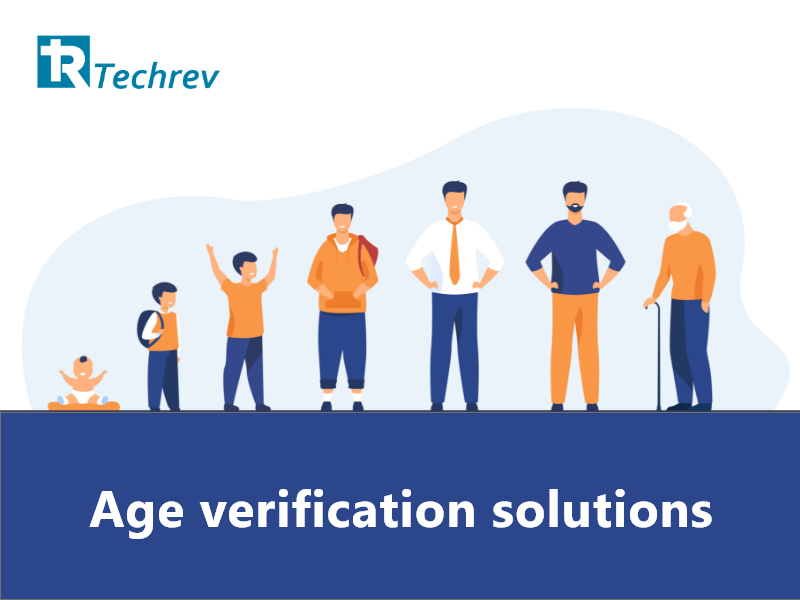
Age Verification plays a major role in the online shopping domain, especially in the e-commerce sector. In this article, we are going to discuss in detail about age verification solution.
Online shopping has become the new norm since the COVID-19 Pandemic outbreak last year.
With various digital products and services taking the forefront, online businesses need to meet the constantly evolving customer demands to survive in this highly competitive marketplace.
A study has already predicted that almost 2.14 billion consumers would only use online platforms to purchase products and services by the end of 2021.
This current consumer buying pattern has already given a strong surge in the number of e-commerce platforms.
How does age-verification matter in the e-commerce business?
Currently, e-commerce businesses are not only selling healthcare, electronics, foods, diet and clothing products where age-verification might not be required, but they also sell items like Alcohol, tobacco and other things that require buyers to be age qualified.
Online businesses selling age-exclusive products or services have to be socially and ethically responsible to safeguard the underaged buyers from accessing age-restricted products or content. This where an age-verification service plays a crucial role, as it enables businesses to only deliver age-appropriate products and services to buyers.
The reasons the implementing an age-verification service:
Consumption of age-restricted products or services which are offered over online platforms can harm the psychological and physical health of minors. What if an underage person gets their hands on an adult-themed online magazine or products like tobacco and alcohol?
This is exactly the reason why the e-commerce platforms selling age-restricted items must verify their users’ age with an age verification software.
The age-verification process can prevent people under the appropriate age from accessing the age-restricted products or content on an e-commerce site.
Common Risks in The E-commerce Domain:
Fraudsters employ different tactics to steal the identity of genuine users to commit financial fraud. From compromised credit card fraud to identity theft, fraudsters always leverage consumer data.
Besides that, young people themselves are often not capable of determining whether an online platform is safe or not and end up providing their personal and financial information to the fraudsters.
The lack of legitimate age-verification system platforms is one of the reasons behind the rising number of child identity theft.
The challenges that e-commerce businesses without an age-verification system often face are given below:
Chargeback Costs:
On average, friendly fraud accounts for 86% of the chargebacks filed.
Usually, fraudsters order a product or content online, use that for one of two months and then claim that they didn’t even purchase it. This is known as chargeback fraud. The merchant or business receives the request and has to return the amount in most cases.
Minors often use the credit cards of their parents to buy video games that have a decent amount of violence-related content. This is where businesses need to establish credit card authentication with the age-verification process to prevent minors from buying non-suitable items so that businesses can stay away from chargeback costs.
Identity Theft:
It’s the most common type of fraud performed over the internet. The stolen identities are used for either taking over the existing accounts or creating synthetic or fake identities.
E-commerce platforms are the ideal place for cybercriminals to fulfill their illicit objectives using the identity information of others and buying products and services with the stolen identity.
Child identity theft is a growing problem, as criminals steal Social Security Numbers of minors to create a synthetic identity that is used for availing credit cards and other benefits.
Brand and Business Legitimacy:
Not following the age verification properly could get a business into a serious problem. Not having an age restriction process for minors can seriously spoil the image and credibility of a business and become a potential cause of e-commerce fraud.
A drop in an e-commerce brand’s credibility, or damage to its market reliability in terms of customer loyalty and acquisition.
How does eyeDnow provide an age-verification service?
eyeDnow enables a business to conduct an online visual identity verification service through an interactive real-time video call. Users can capture the image of the customers and their legitimate age-verification documents.
It also allows businesses to send age and identity proving document uploading links to their customers remotely.
With eyeDnow’s real-time visual ID verification solution, e-commerce businesses can easily onboard their new customers, then store and retain their information in secure cloud storage.
If you want to have more clarity on eyeDnow, we would love to provide you with a demo session.
